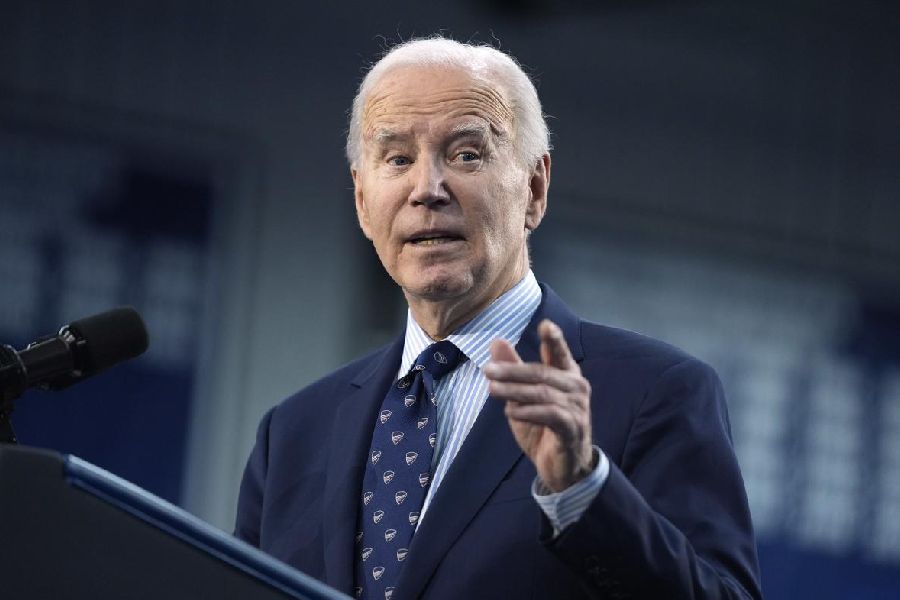The Biden administration announced a series of new financial sanctions on Wednesday aimed at interrupting the fast-growing technological links between China and Russia that US officials believe are behind a broad effort to rebuild and modernise Russia’s military during its war with Ukraine.
The actions were announced just as President Joe Biden was leaving the country for a meeting in Italy of the Group of 7 major industrialised nations, where a renewed effort to degrade the Russian economy will be at the top of his agenda.
The effort has grown far more complicated in the past six or eight months after China stepped up its shipments of microchips, optical systems for drones and components for advanced weaponry, US officials said. But so far Beijing appears to have heeded Biden’s warning against shipping weapons to Russia.
Announcing the new sanctions, treasury secretary Janet Yellen said in a statement that “Russia’s war economy is deeply isolated from the international financial system, leaving the Kremlin’s military desperate for access to the outside world”.
At the heart of the new measures is an expansion of “secondary” sanctions that give the US the power to blacklist any bank around the world that does business with Russian financial institutions already facing sanctions. This is intended to deter banks in places like China from helping Russia finance its war effort.
The treasury department also imposed restrictions on the stock exchange in Moscow in hopes of preventing foreign investors from propping up Russian defence companies. The sanctions hit several Chinese companies that are accused of helping Russia gain access to critical military equipment such as electronics, lasers and drone components.
Although the measures expand the reach of the US sanctions programme, the Biden administration has so far held back from imposing sanctions on Chinese or European banks that it believes are helping Russia. The new measures do not restrict banks from facilitating transactions related to Russia’s energy exports, which the Biden administration has allowed to continue out of concern that restricting them could fuel inflation.
In a separate move, secretary of state Antony Blinken said the state department was imposing sanctions on more than 100 entities, including companies “engaged in the development of Russia’s future energy, metals, and mining production and export capacity”.
In March 2022, shortly after the war began, Biden announced an initial round of financial actions and declared: “As a result of these unprecedented sanctions, the ruble almost is immediately reduced to rubble.”
It was not. After a brief dive, it recovered, and while today it is not as strong as it was a year ago, the Russian economy has been growing because of the strength of war-related growth.
New York Times News Service











